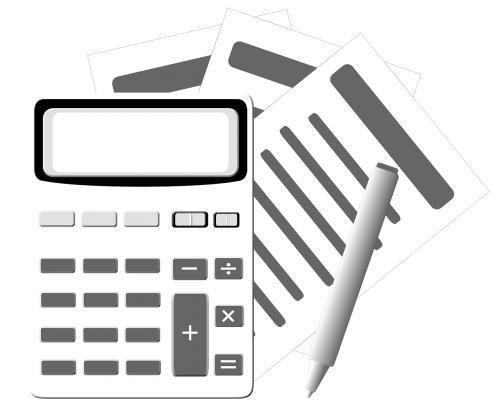Navigating the Landscape of Accounting in Ireland

Accounting is a crucial aspect of running any business, ensuring that financial records are accurate and up-to-date. In Ireland, accounting practices have evolved to meet the needs of a diverse and dynamic economy. This article delves into the landscape of accounting in Ireland, exploring the roles of Ireland accountants, regulatory frameworks, and the benefits of hiring professional accounting services.
Understanding Accounting in Ireland
Accounting in Ireland involves recording, classifying, and summarizing financial transactions to provide insights into a company's financial health. It encompasses various activities such as bookkeeping, auditing, tax preparation, and financial reporting. Irish businesses, regardless of size, need to comply with national and international accounting standards, making the role of accountants critical.
The Role of Ireland Accountants
Ireland accountants play a pivotal role in helping businesses navigate the complexities of financial management. They offer services that range from basic bookkeeping to comprehensive financial planning and analysis. Here's a closer look at what accountants in Ireland do:
Bookkeeping: Maintaining accurate records of all financial transactions.
Tax Services: Preparing and filing tax returns, ensuring compliance with Irish tax laws.
Auditing: Conducting independent reviews of financial statements to ensure accuracy and compliance.
Financial Reporting: Preparing financial statements that reflect the company's performance.
Advisory Services: Providing strategic advice on financial planning, investments, and risk management.
Regulatory Framework for Accounting in Ireland
Ireland has a robust regulatory framework governing accounting practices. The main regulatory bodies include:
The Irish Auditing and Accounting Supervisory Authority (IAASA): Oversees the quality of financial reporting and auditing.
The Revenue Commissioners: Responsible for tax collection and enforcement.
The Companies Registration Office (CRO): Ensures that companies comply with the Companies Act, which includes requirements for financial reporting.
Key Accounting Standards in Ireland
Businesses in Ireland must adhere to several accounting standards and frameworks, including:
International Financial Reporting Standards (IFRS): Used by publicly traded companies.
Generally Accepted Accounting Principles (GAAP): Applies to smaller, privately-held companies.
Local Standards: Specific to certain industries and sectors within Ireland.
Benefits of Hiring Professional Accounting Services in Ireland
Engaging professional Ireland accountants offers numerous advantages for businesses:
Expertise and Knowledge: Professional accountants bring a wealth of knowledge about local and international accounting standards, ensuring compliance and accuracy.
Time-Saving: Outsourcing accounting tasks frees up time for business owners to focus on core activities.
Strategic Planning: Accountants provide valuable insights into financial performance, aiding in strategic decision-making.
Tax Efficiency: Expert tax planning and preparation can result in significant savings and compliance with Irish tax laws.
Risk Management: Accountants help identify financial risks and implement measures to mitigate them.
Choosing the Right Accounting Firm in Ireland
Selecting the right accounting Ireland firm is crucial for leveraging the benefits mentioned above. Here are some tips for choosing the best accounting services in Ireland:
Assess Your Needs: Determine the specific accounting services your business requires.
Check Qualifications: Ensure that the accountants are certified and have relevant experience in your industry.
Reputation and Reviews: Look for firms with positive client testimonials and a solid reputation.
Technology and Tools: Choose a firm that uses modern accounting software for efficiency and accuracy.
Cost: Consider the cost of services and ensure they fit within your budget without compromising on quality.
The Future of Accounting in Ireland
The accounting landscape in Ireland is continuously evolving, driven by technological advancements and changes in regulatory requirements. Here are some trends shaping the future of accounting in Ireland:
Digital Transformation: The adoption of digital tools and software is revolutionizing accounting practices, making processes more efficient and accurate.
Cloud Accounting: Cloud-based accounting solutions offer real-time access to financial data, enhancing decision-making.
Data Analytics: Advanced data analytics provide deeper insights into financial performance and trends.
Sustainability Reporting: Increasing focus on sustainability is leading to the inclusion of environmental and social factors in financial reporting.
Regulatory Changes: Ongoing updates to accounting standards and regulations require businesses to stay informed and adapt accordingly.
Conclusion
Accounting in Ireland is a vital function that supports businesses in managing their finances, ensuring compliance, and driving strategic growth. Ireland accountants are equipped with the expertise and tools necessary to navigate the complex financial landscape, offering services that range from basic bookkeeping to advanced financial planning. By understanding the regulatory framework and leveraging professional accounting services, businesses in Ireland can achieve greater financial stability and success.
As the accounting field continues to evolve with technological advancements and regulatory changes, staying informed and adaptable is key. Whether you are a small business owner or managing a large corporation, investing in professional accounting services can provide the support needed to thrive in the competitive Irish market.








Comments